
Albania and Croatia are becoming members of NATO, SHAPE (April 2009); Photo: NATO
In the following text I try to build on the conclusions reached by Vít Střítecký in his article and outline in general, yet hopefully comprehensive terms possible contours of NATO’s future strategy. I start with several hypotheses concerning the current international system which I consider crucial. Next, I ask and attempt to asnwer key questions concerning NATO’s role. Finally, I summarize four basic strategic objectives which, in my opinion, NATO should follow.
To comment on the current state of international (or global) affairs is a daunting task, given their complexity and ambiguity of possible interpretations. Still, I believe some core facts are beyond doubt:
- The decline of interstate warfare. Almost all armed conflicts today take the form of an internal struggle, most often with a government facing an armed opposition. More significantly, the possibility of a „great power war“ is even less likely, largely due to the ownership of nuclear weapons and the awareness of the scale of destruction such a confrontation would bring. The trend might still change in the future or be breached because of miscalculation or other unpredictible factors, but in general it looks firm.
- At the same time, non-military competition between great powers increases, due to the growth of what Fareed Zakaria termed „the Rest“, meaning non-Western actors such as China or India. The trend does not threaten the Euroatlantic community in the short term (and, if we speak about direct military threats, perhaps not at all) but it undeniably results in decreasing „permissiveness“ of the international environment for American and European interests and ideas.
- There is no single enemy which the Euroatlantic community must face. International terrorism or proliferation of WMD are multi-layered, diffuse processes and the use of military means for their suppression is rather limited. And though relations with Russia or China are strained and conflictual in many aspects, they clearly fall short of the level of enmity which characterized the Cold War or the period between WWI and WWII.
- The outbreaks of violence in the world today most often call for a „policing“ approach (even if this is accomplished by military means), rather than massive deployment of an overwhelming military force. This poses a challenge for Western armed forces which are expected to retain their territorial defence capabilities, and yet are repeatedly asked to perform a range of non-military (or rather non-combat) tasks from humanitarian assistance to police operations.
My argument is that these four aspects form a general precondition on which the NATO’s future strategy must be built. The following two questions – basically asking what NATO should do and where – should thus be understood in this general context:
1) What roles can and should NATO play? In my opinion, the original concept of a politico-military organization is still entirely sufficient and NATO should continue performing these twin roles.
At the political level, it should serve as a platform for building and maintaining unity of the Euroatlantic area in defence-related matters (such as the threat posed by Iran’s acquisition of a nuclear weapon). This task will naturally require some institutional reforms given the role of the EU, but at present there does not seem to be an alternative organization to perform it better.
At the military level, several objectives seem paramount:
- deterrence (resting on a modernized nuclear posture combined with a build-up of a missile defence system)
- support for continuing transformation and modernization of member states‘ armed forces and their harmonization, especially concerning those sections of armed forces which are earmarked for expeditionary warfare
direct action in the form of either large-scale stabilization operations (if the European Union cannot handle them itself) or more limited counter-terrorist actions (undertaken by special forces on an ad hoc basis which could utilize the military harmonization processes) - creation of a transatlantic defence market which could also include relevant non-NATO producers (such as Israel)
military-to-military cooperation with non-NATO countries on a global scale to promote the Euroatlantic values and learn about both potential partners and adversaries
As Vít Střítecký suggests in his article, all other aspects of security (or rather, in many cases, „security “) should better be left for other organizations and institutions to handle, unless they have a clear and undisputed link to military security.
2) Should NATO have a global reach? The answer depends on the nature of NATO activities:
- Deterrence and defence modernization inevitably have a global reach in the sense that they should protect the member states from whatever military threat, wherever it occurs, if it is directed against them. Nevertheless, their implementation will inevitably be „tailored“ to specific threats which will be identified.
- On the issue of out-of-area, non-article 5 operations, NATO should adopt a „selective global approach“. The selection will leave out regions which are generally non-threatening (Latin America), or where NATO action would risk a confrontation with a major power (post-Soviet space, East Asia, South Asia). What remains? If we leave out the already stabilized Balkans, future NATO actions will most likely concern Africa and the Middle East (broadly defined). Much will depend on the willingness of the U.S. to cooperate (which can be expected to increase with the continuing rise of „the Rest“) and European ability to contribute (which is by no means guaranteed and is likely to be the greatest flaw in any NATO strategy).
- NATO should maintain its cooperative reach through institutions such as the Euro-Atlantic Partnership Council or the Mediterranean Dialogue, to build a reservoir of good will in partner countries and to maintain access to relevant military information. If possible and available, the scope of such cooperation should be extended.
- For the purpose of stabilization operations, NATO should establish formal partnerships with states interested in mutual cooperation which however stay out of the institutions mentioned in the previous point (e.g. Australia, South Korea). In case of interest on both sides, these partners could subsequently integrate deeper into NATO structures.
To sum up, NATO’s new strategy should focus on the following objectives:
- Uphold the relevance of „the West“ in the shifting international power structure by forging its political unity in defence matters and by supporting the processes of transformation, modernization and harmonization of its armed forces and the creation of a transatlantic defence market
- Secure military defence of Europe from potential attacks, primarly by nuclear deterrence, missile defence and military modernization
- Contribute to the stabilization of the international environment and defend the interests and values of the Euroatlantic community in pre-defined regions (Africa, Middle East) by direct military action if other means (e.g. diplomacy, police coooperation, covert activities) fail
- Promote the interests and values of the Euroatlantic community on a global scale by means of military-to-military cooperation.

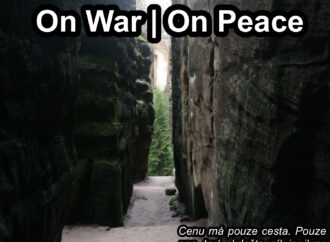
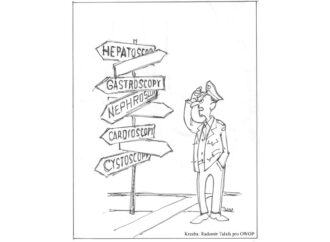



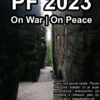
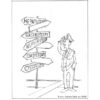
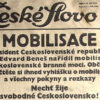

10 Comments
Petr Z.
28. 1. 2010, 10:09I can sense a great deal of scepticism both in mr.Karasek´s and especially mr. Stritecky´s articles. Scepticism concerning the contemporary performance and future heading of the Alliance. It might be more interesting for the audience, which was not present in the conference, to be told on what is this scepticism founded. I can guess but I would prefer to have something firm in my reach..
More specifically to mr. Karasek´s article, I must applaud to its logical structure and clear points, which were made. On such small space it is a difficult task. Yet, if mr. Karasek wanted to narrow the NATO´s agenda (might be only me impression), then I do not really understand why he stays quite ambiguous in one aspect – the values and interests of the Euroatlantic community, what precisely is meant by this? And what does it mean for the current counter-terrorism agenda and focus on peace enforcement and peace-building?
Thanks in advance.
REPLYTomáš Karásek
29. 1. 2010, 4:32To Petr Z.:
First of all, thanks for your comments and questions. I should clarify that I was not present at the PSSI conference Vítek was referring to, so all the ideas and conclusions in my article are of my own making (as are, of course, all possible mistakes).
I am quite surprised you see my theses as pessimistic, I was actually trying to make an (almost) opposite argument. Of the four general trends I mention, only the second is worrying for the NATO (or the Euroatlantic community in general) – and then only up to a point, because at the moment, I believe, there are no clear signals that the great power competition could turn into armed conflict (as I indicated in point 1). Yes, I think the power and influence of Europe and the U.S. is waning, but I am also convinced that this will be a very long (several decades), hopefully orderly process. I am also quite optimistic that „the game“ in the international arena will for a long time be dominated by rules, norms and ideas which originate in the West.
Implications for the fight against terrorism and other out-of-area operations? Well, it’s clear our(„Western“) sphere of influence will be diminishing, and clearly other powers (China, Russia, India) will not let us send our soldiers to pursue our goals in their neighbourhood. But that’s not the case even today, is it? And, after all, nobody likes terrorists (OK, some gentlemen in Tehran may be an exception), nobody likes to see civil wars which threat their oversees investment, so I would hope for more cooperation with the „emerging powers“ in this regard. Maybe we won’t get the help from China or India in Afghanistan, but possibly in the next stabilization operation (not that I wished for one).
Concerning the „interests and values“, we can argue endlessly about them. Apart from specific national interests I would list the general Euroatlantic interests/values (since I find it hard to separate them completely) as follows: openness (primarily for economic activities, ideally in the broadest possible sense), stability (no abrupt changes in the international systems), decency (broadly speaking treating humans humanly) – realistically in this order. And, as I said, we will only have an opportunity to enforce them by force in a limited area. Elsewhere, we can only persuade, hope for the best and lead by example :-)
I do not think we need to define our interests and values in a too narrow way, but we should definitely be very precise about our specific goals towards countries, regions and issues. For NATO, in my opinion, this means focusing really just on the military aspects of security, in a limited geographical scope: keep the European armed forces in shape, deter Russia from interfering in the affairs of NATO/EU member states, build missile defence to stay ahead of possible future missile threats, cooperate with anyone interested in learning and sharing ideas on defence policy, and be ready to send soldiers to Africa and Middle East if any trouble turns too ugly to tolerate (another Rwanda) or directly threatens our interests (by cutting off oil supplies, disrupting the flow of other important goods, threatening stability on a regional basis, resulting in a major outflow of refugees). My idea. What’s yours?
REPLYPetr Z.
29. 1. 2010, 18:27First let me explain myself, as I have failed to spoke my mind clearly. By scepticism I ment rather narrow scope of NATO agenda, where I am much more optimistic. I must acknowledge that scepticism/optimism are clearly not the best words to capture this question, sorry for a possible confusion.
Secondly, I should state that I am clearly no expert on NATO, Transatlantic relations or regime theory, as my interests lies elsewhere. Therefore please bear this in mind when reading the following text.
I would diverge from mr. Stritecky´s prescriptive and yours systemic analysis, rather focusing on state-actors.
The premise of my analysis rests on assumption that the heading of the Alliance is always steered by the US. Washington Summit (Defence Capabilities, Initiative, out of are or out of business), Riga Summit (the NRF) are quite telling examples. Similarly the enlargement of NATO is quite US-driven. All the changes are simply enforced by the US, with more or less accord of other members.
In the same line, most of the NATO actions in Afghanistan is US affected. It is not remembered much today that the US position towards the NATO performance after the year 2003 was make it or break it, somehow hoping to encourage its allies to take the mission seriously.
The US sees itself as a global power and retreat form this position is unlikely in near future. At the same time the US experiences an obsession with international terrorism, its warfare doctrines are slowly changing to the vision of irregular warfare.
From this I assume, that the US would like NATO to adapt on such roles. Gradually embracing less strict military mission (DDR, Security sector reform, humanitarian catastrophes reaction and ultimately nation and state-building), whether accomlished only by the NATO potential of with cooperation with EU or UN (since 2008 formal cooperation) is less clear.
What is clear however, is that most of the European allies will try to resist such a transformation, hoping to limit NATO actions to the European territories, for the sake of their uninterventionist identity (Germany) or fear from Russia (Poland, Baltic countries, CR?).
If the US will assess NATO as not serving their interests it will simply choose not the use it in its political endeavours, Afghanistan 2001-2003 is a clear example.
I would not count much on the American extended deterrent on European continent, as it now numbers only two hundred obsolete pieces of nuclear bombs, with no visible intention to renew it. Obama´s promises to include NATO in a new mobile defense shield is only a promise and Obama does not have very good record keeping his promises so far, moreover the word „mobile“ is crucial here. More importantly the US does not need NATO to deterr Russia, China or other potential peers.
What is the result of this equation then? Not very suprisingly, European countries will be forced to choose to participate more in the US endeavours or forget the idea of institutionally and identitary strong NATO.
Some authors underscores that contemporary morass of the Alliance is caused by the unclear strategic vision of NATO´role (unlike the vision of its capabilities), but I think that this is rather a result of different understanding of the Alliance on both coasts of the Atlantic ocean. Again I am not sure whether it is really possible to reconcile both vision without hollowing out NATO at the same time. And as the US is not likely to change its vision, it is up to the Europe to choose. Judging from the European behaviour in Afghanistan (German recent retreat from future military operations engagement), NATO is on a slippery slope.
Here I clearly contradict my previous contribution for sayin that your and mr.Stritecky analysis was too sceptical. Too „sceptical“ when it comes to the agenda (presuming that Europe will choose to cooperate more with the US) not the overall heading of the Alliance.
REPLYTomáš Karásek
30. 1. 2010, 0:26OK, your explanation makes the optimistic/pessimistic thing much clearer. And if your use it as a synonym for more/less ambitious, I would agree with you – up to a point.
I also agree with your actor-based, US-focused analysis but at the same time it’s worth mentioning that the US was sending pretty mixed signals towards its European allies after 9/11. On September 12, 2001, NATO invoked Art. 5 for the first time in history – and the US basically said „no, thank you“ (I know – this is simplified, but still essentially correct, I believe). So on the one hand, we had all the initiatives aimed at transforming the NATO towards expeditionary warfare, but on the other hand clear signals from the American side that if possible, they prefer to work alone, or through a coalition of willing.
In my text, I also make it clear that NATO should be ready for more out-of-area operations, but I am not quite convinced it’s wise to try to extend its functions to tasks like SSR, postconflict reconstruction etc. The thing is, it is exactly these activities that the EU has been developing – and at least some member states (like France) will not agree with taking this „toy“ away from the EU. I would even argue that it would not be wise, given the fact that NATO is a defence institution, having no established links to other parts of the executive (unlike the EU, or unlike the US and European governments). Therefore I don’t see it as particularly fit to dealing with the „soft“ issues of interventionism.
I still think NATO has its value, but I am convinced it should really focus on the defence/military aspects: readiness for large-scale, intensive military deployments (expeditionary warfare – it is still possible we will need to defend an enemy somwehere), deterrence (of course US does not need NATO to deter Russia, but Europe does – and, just to correct your information, according to the Bulletin of Atomic Scientists, in 2007 the US possessed 5700 nuclear warheads) enhanced by missile defence, and, perhaps most importantly, modernization of military capabilities.
This is my personal opinion, but I simply find it fascinating that after more than 50 years of NATO we still don’t have a functioning transatlantic defence market and better coordinated armament policies. I sincerely believe NATO should concentrate on this topic and adopt some well-crafted initiatives which would move things ahead. Unlike some other analysts, I don’t believe the EU is fit to do this – and there’s nobody else. I readily admit this is may be just my dream , and in reality there may be no interest in this on the part of the member states. Still I think this would be a more rational undertaking than transforming NATO into something like ESDP writ large.
REPLYTomáš Karásek
30. 1. 2010, 0:39Just a correction: the 2007 number of US nuclear warheads was 5400, not 5700. Sorry about the mistake.
REPLY